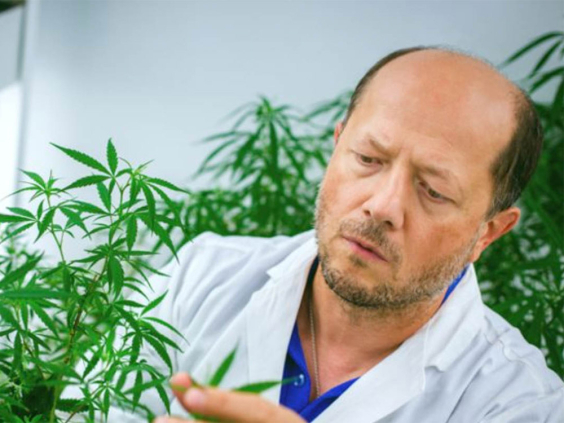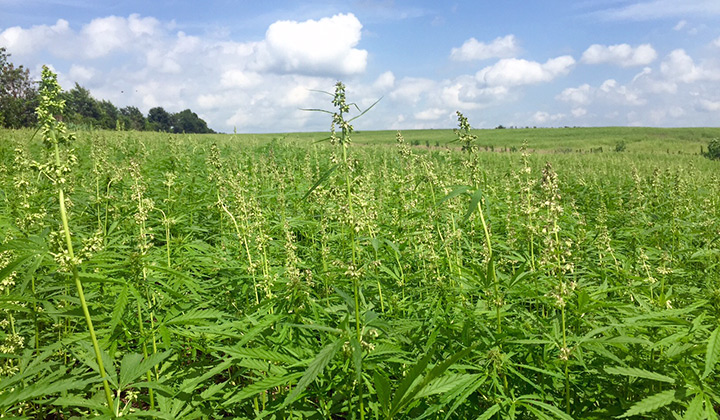
CBD is everywhere, but is CBD safe for kids? From corner stores and bars to medical marijuana dispensaries, CBD is being offered for its reputed ability to relieve pain and make people feel better.
Though CBD — full name cannabidiol — is extracted from hemp, it doesn’t contain THC, the chemical in marijuana that has psychoactive effects, so it doesn’t make you feel high.
Available in the form of vaping, oils, lotions, cocktails, coffee, gummies — you name it — CBD has been touted as a treatment for complaints as far-reaching as chronic pain, cancer, migraines, anxiety, and ADHD. You know it’s gone mainstream when even Consumer Reports has issued guides on how to shop for CBD and tips for safe CBD use.
Not only are adults experimenting with CBD for whatever is bothering them, increasingly parents are turning to CBD to help their kids focus, sleep, calm down and more.
Popular use of CBD is blowing up, but more research is needed into its safety or its efficacy, especially in children. The first and only marijuana-derived drug approved by the Food and Drug Administration, Epidiolex, is used to treat a rare, severe form of epilepsy in patients two years of age and older. And since cannabis is in the early stages of legalization and regulation, there is a huge variety in the quality and dosage of products — risks associated with using products that have not been vetted by the FDA.
What do we know about CBD?
For millennia, hemp plants have been used for medicinal purposes around the world. In 1851 marijuana was classified by the United States Pharmacopeia as a viable medical compound used to treat conditions like epilepsy, migraines, and pain. But since marijuana and cannabis-related products were made illegal in the US in 1970, there has been a dearth of research about either marijuana or CBD. Its classification as a Schedule 1 drug made it nearly impossible to get federal funding to study cannabis.
Is CBD safe?
Last year the World Health Organization, acknowledging the explosion in “unsanctioned” medical uses of CBD, reviewed the evidence for its safety and effectiveness. The WHO report concluded that “CBD is generally well tolerated with a good safety profile.” Any adverse effects could be a result of interactions between CBD and a patient’s existing medications, the WHO noted.
The report found no indication of potential abuse or dependence. “To date there is no evidence of recreational use of CBD or any public health-related problems associated with the use of pure CBD.”
As for effectiveness, the WHO noted that several clinical trials had shown effectiveness for epilepsy, adding: “There is also preliminary evidence that CBD may be a useful treatment for a number of other medical conditions.”
CBD oil for anxiety
In 2015 a group of researchers led by Esther Blessing, Ph.D., of New York University, investigated the potential of CBD for treating anxiety. In a review of 49 studies, they found promising results and the need for more study.
The “preclinical” evidence (ie from animal studies) “conclusively demonstrates CBD’s efficacy in reducing anxiety behaviors relevant to multiple disorders,” Dr. Blessing wrote. Those include generalized anxiety disorder, PTSD, panic disorder, social anxiety disorder, and OCD.
The review notes that the promising preclinical results are also supported by human experimental findings, which also suggest “minimal sedative effects, and an excellent safety profile.” But these findings are based on putting healthy subjects in anxiety-producing situations and measuring the impact of CBD on the anxiety response. Further studies are required to establish treatment with CBD would have similar effects for those who struggle with chronic anxiety, as well as what the impact of extended CBD use may be.
“Overall, current evidence indicates CBD has considerable potential as a treatment for multiple anxiety disorders,” Dr. Blessing concludes, “with need for further study of chronic and therapeutic effects in relevant clinical populations.”
CBD and autism
A group of Israeli researchers have been exploring the use of CBD to reduce problem behaviors in children on the autism spectrum. A feasibility study involving 60 children found substantial improvement in behavioral outbreaks, anxiety and communication problems, as well as stress levels reported by parents.
The researchers, led by Dr. Adi Aran, director of the pediatric neurology unit at Shaare Tzedek Medical Center, went on to do a double-blind, randomized, placebo-controlled trial with 150 participants with autism. In this trial, just completed but not yet analyzed, patients were treated CBD for three months.
Research boom
In the US, research has been given a boost by changing guidelines and laws. In 2015 the DEA eased some of the regulatory requirements that have made CBD, as a Schedule 1 substance, difficult to study. “Because CBD contains less than 1 percent THC and has shown some potential medicinal value, there is great interest in studying it for medical applications,” the DEA said in announcing the change.
And in approving the first CBD-based drug, Epidiolex, last year the FDA expressed enthusiasm for the research boom that is sure to come, paired with stern words for the flood of marketers of products claiming unsubstantiated health benefits.
“We’ll continue to support rigorous scientific research on the potential medical uses of marijuana-derived products and work with product developers who are interested in bringing patients safe and effective, high-quality products,” the FDA pledged. “But, at the same time, we are prepared to take action when we see the illegal marketing of CBD-containing products with serious, unproven medical claims.”
Concerns about CBD
- Some brands are unreliable in delivering a consistent amount of CBD. They could have less or more than advertised, and most do not offer independent verification of active contents. Analysis of products for sale shows that many do not have the amount of CBD that they advertise. That’s why at GENESIS LIFE, we post our independent third party test lab sheets, so you can be confident of the amount of CBD in our products.
- How much is absorbed? Very little is known about how much CBD is actually delivered to the brain in a given product. Various delivery systems — vaping, taking it orally, eating it in baked goods, etc. — have different rates of delivery. Even the oils that the CBD is dissolved in can result in varying effects.
- Some brands may contain things other than CBD, and they could be harmful. Lab testing — which provides information about CBD levels, THC levels (if any), and contaminants in the product — isn’t mandatory for CBD products in every state. That’s why at GENESIS LIFE, we provide our CoA (Certificate of Analysis) to make it easier to verify the safety of our products. Bootleg CBD may be connected to recent lung illnesses and deaths that have been attributed to vaping. The CDC and the American Medical Association recommend avoiding vaping entirely while the cause of these illnesses is determined.
- CBD may be safe itself, but it may interact with other medications a child is taking, which are also metabolized in the liver. That’s why we at GENESIS LIFE always recommend NOT taking CBD while on other medications.
- Since CBD use — especially for kids — is a still so new, few people are familiar with dosing for children, so determining how much to give your child would be tricky. Clinical doses versus what you might find at a coffeehouse could vary dramatically. At GENESIS LIFE, we recommend a reduced child dose based on the height and weight of the child.
- The legality of cannabis products and CBD is still murky. CBD derived from hemp is federally legal, while CBD derived from marijuana plants is subject to the legal status in each state — and remains federally illegal. Meanwhile, the FDA issued a statement making clear that products that contain CBD — even if they are derived from legal, commercial hemp — cannot claim to have therapeutic benefits or be sold as dietary supplements unless they have been approved by the FDA for that use.







